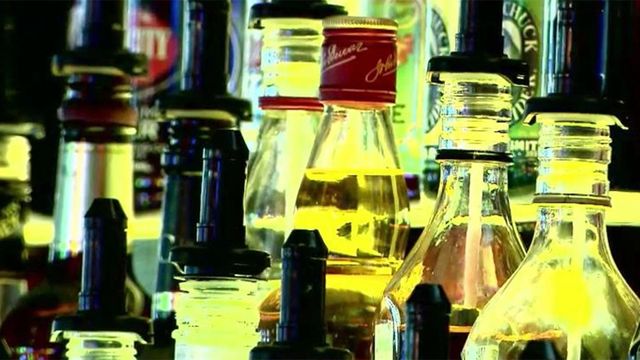Behind on taxes? NC bars, restaurants could lose liquor licenses
One in three businesses with a liquor license in North Carolina is behind on taxes, costing the state nearly $46 million, according to the Department of Revenue. The agency wants to start taking away liquor licenses if the taxes aren't paid, but the idea isn't sitting well with a major lobbying group for bars and restaurants.
Posted — UpdatedDowntown Raleigh restaurants StarBar and PieBird are two examples of tax-delinquent businesses. Trawick Enterprises, which runs StarBar, was hit with a $98,000 civil tax lien in the past month, according to public records. PieBird owes nearly $37,000, according to liens.
The WRAL Investigates team reached out to the restaurants for comment in person, by phone and on Facebook, but received no response.
“It’s simply not fair for one taxpayer who’s paying their taxes on a regular basis to have to subsidize the non-compliance of maybe their competitors,” said Charlie Helms, the state's tax compliance director. “These are monies that are collected by a retailer through sales tax or by an employer through withholding tax, and they’ve simply failed to turn that over to the state.”
“Certainly, a local bar or local restaurant tend to be things that people go into that are under-capitalized," he added. "(They are) great people. They’re very nice people, but they may not necessarily know how to run a business very well."
Helms’ agency is pushing for changes to make sure everyone with a liquor license is treated the same way. His agency does not release information on individual taxpayers, making it difficult to compile a list of all the offenders. However, the WRAL Investigates team was able to find a few by searching tax liens filed against individuals and corporations.
Sammy Stephens, owner of Sammy's Tap and Grill in Raleigh, says beer, wine and liquor sales make up about 35 percent of his business, which pays its taxes on time.
“We take care of paying all our bills, because that’s how you stay around,” Stephens said, adding that he was “shocked” to learn that more than a third of his competitors haven’t done the same.
The state Department of Revenue estimates 39 percent of bars are non-compliant. Their unpaid tab with the state is nearly $4.5 million. About 34 percent of restaurants haven't paid up and owe the state $29.8 million. Add in non-compliant convenience stores, hotels and grocery stores, which owe $11.4 million, and the state is getting shorted more than $45 million.
“They’ve taken that money and spent it on other things,” Helms said.
If the Department of Revenue gets its way, those establishments won't get to renew their annual ABC permits until the tax bill is paid or the owner is put on a payment plan. The agency is taking a page from the state Department of Motor Vehicle’s playbook, which says drivers must make sure excise tax and inspections are up to date before their registration can be renewed.
“That would get people to pay,” Stephens said. “If they come up with a legitimate plan that makes sense, common sense, that should be corrected. And it sounds like it needs to be corrected.”
Lynn Minges, of the North Carolina Restaurant and Lodging Association, says shutting off the taps will only make things worse for struggling businesses.
“First of all, folks should meet their tax obligations,” she said. “(But) if we want those to pay their back taxes, we’re not sure that taking away their alcohol permit is the best way to accomplish that.”
Despite the high rate of back taxes, Minges says she believes it's unfair to just go after bars and restaurants.
“We think it’s unfair to target just one section of our state’s economy,” she said. “Bankers, lawyers, (real estate agents), cosmetologists, the list goes on and on and on. I’m not sure why just restaurant and ABC permit holders are being singled out.”
The tax collection tool now shifts to the General Assembly for debate. Department of Revenue spokesman Trevor Johnson says a draft of the bill for the initiative was reviewed at the Revenue Laws Committee meeting earlier this month and was voted forward out of the study committee.
• Credits
Copyright 2024 by Capitol Broadcasting Company. All rights reserved. This material may not be published, broadcast, rewritten or redistributed.






